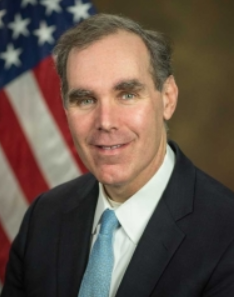A statement released Sunday by the press secretary for Michigan Attorney General, Dana Nessel (D) stated that she will no longer enforce Governor Whitmer's Coronavirus emergency powers. The statement comes after a ruling on October 2nd by the Michigan Supreme Court.
AG Nessel's press secretary Ryan Jarvi stated, “In light of the Supreme Court’s decision on Friday, the Attorney General will no longer enforce the Governor’s Executive Orders through criminal prosecution. However, her decision is not binding on other law enforcement agencies or state departments with independent enforcement authority. It’s her fervent hope that people continue to abide by the measures that Governor Whitmer put in place - like wearing face masks, adhering to social distancing requirements, and staying home when sick - since they’ve proven effective at saving lives. If it weren’t for the Governor’s actions, countless more of our friends, family, and neighbors would have been lost to COVID-19. We can respect both the court’s decision and the advice of medical experts by continuing with these important measures voluntarily.”
Governor Whitmer's orders were among the most restrictive in the nation. However, just this past April, she doubled down with adding further restrictions. Her Executive Order suspended activities that were "not necessary to sustain or protect life." As of May 4th, Whitmer issued 69 executive orders pertaining to the Corona Virus in 56 days. She declared a state of emergency on March 10th.
 Assistant Attorney General for Civil Rights Eric Dreiband
Assistant Attorney General for Civil Rights Eric Dreiband
On Friday, October 2nd, the day of the ruling, Assistant Attorney General Eric Dreiband released a statement that celebrated the Michigan Supreme Court ruling as a "victory for all Michiganders and the rule of law...The United States Constitution guarantees a republican form of government to every state in our free country. The Constitution does not permit any public official unlawfully to restrict our liberty. All public officials must respect the right of the people to govern themselves at all times, especially during a crisis.”
Governor Whitmer's team argued that the order should stay in place for 21 days after the ruling. On Friday, Governor Whitmer expressed her disappointment in the ruling:
 Michigan Governor Gretchen Whitmer (D)
Michigan Governor Gretchen Whitmer (D)
“Today’s Supreme Court ruling, handed down by a narrow majority of Republican justices, is deeply disappointing, and I vehemently disagree with the court’s interpretation of the Michigan Constitution. Right now, every state and the federal government have some form of declared emergency. With this decision, Michigan will become the sole outlier at a time when the Upper Peninsula is experiencing rates of COVID infection not seen in our state since April. It is important to note that this ruling does not take effect for at least 21 days, and until then, my emergency declaration and orders retain the force of law. Furthermore, after 21 days, many of the responsive measures I have put in place to control the spread of the virus will continue under alternative sources of authority that were not at issue in today’s ruling."
The Michigan Supreme court ruled in a split decision and was in response to "a lawsuit filed by seven businesses challenging the restrictions imposed by Governor Gretchen Whitmer in response to the COVID-19 pandemic. That statement of interest explained that the governor’s COVID-19 orders, however well-intentioned, raised constitutional concerns by imposing what appeared to be arbitrary and unreasonable limits on how and ultimately whether certain businesses could operate in Michigan relative to other similarly situated businesses. The statement of interest also explained that the federal Constitution provides for a cohesive national economy for all 50 states and all Americans and that the governor’s COVID-19 orders may be unduly interfering with interstate commerce."
The order found that Governor Whitmer does not have the authority to continue a coronavirus state of emergency under the 1976 Emergency Management Act, and found the 1945 Emergency Powers of the Governor Act was unconstitutional.


